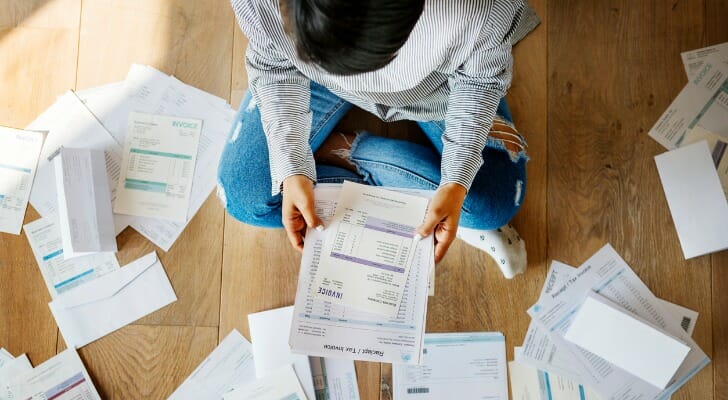How Do I Withdraw Money From Acorns

The 401(k) has become a staple of retirement planning in the U.S. Millions of Americans contribute to their 401(k) plans with the goal of having enough money to retire comfortably when the time comes. Whether you've reached retirement age or need to tap your 401(k) early to pay for an unexpected expense, there are various ways to withdraw money from your employer-sponsored retirement account. A financial advisor can steer you through these decisions and help you manage your retirement savings.
Wait Until You're 59½
If all goes according to plan, you won't need your retirement savings until you leave the workforce. By age 59½ (and in some cases, age 55), you will be eligible to begin withdrawing money from your 401(k) without having to pay a penalty tax.
You'll simply need to contact your plan administrator or log into your account online and request a withdrawal. However, you will owe income taxes on the money (unless you have a Roth account whose contributions have already been taxed), so a portion of each distribution should be designated to cover your tax liability. 401(k) withdrawals aren't mandatory until April 1 of the year after you turn 72 (70½ if you were born before July 1, 1949), at which point you must take a required minimum distribution every year.
Take an Early Withdrawal
Perhaps you're met with an unplanned expense or an investment opportunity outside of your retirement plan. Whatever the reason for needing the money, withdrawing from your 401(k) before age 59½ is an option, but consider it a last resort. That's because early withdrawals incur a 10% penalty on top of normal income taxes.
While an early withdrawal will cost you an extra 10%, it will also diminish your 401(k)'s future returns. Consider the consequences of a 30-year-old withdrawing just $5,000 from his 401(k). Had the money been left in the account, it alone would have been worth over $33,000 by the time he turns 60. By withdrawing it early, the investor would forfeit the compound interest the money would accumulate in the years that follow.
Request a Hardship Withdrawal
In certain circumstances you may qualify for what's known as a hardship withdrawal and avoid paying the 10% early distribution tax. While the IRS defines a hardship as "an immediate and heavy financial need," your 401(k) plan will ultimately decide whether you are eligible for a hardship withdrawal and not all plans will offer one. According to the IRS, you may qualify for a hardship withdrawal to pay for the following:
- Medical care for yourself, your spouse, dependents or a beneficiary
- Costs directly related to the purchase of your principal residence (excluding mortgage payments)
- Tuition, related educational fees and room and board expenses for the next 12 months of postsecondary education for you, your spouse, children, dependents or beneficiary
- Payments necessary to prevent eviction from your principal residence or foreclosure on the mortgage on that home
- Funeral expenses for you, your spouse, children or dependents
- Some expenses to repair damage to your primary residence
Although a hardship withdrawal is exempt from the 10% penalty, income tax is owed on these distributions. The amount withdrawn from a 401(k) is also limited to what is necessary to satisfy the need. In other words, if you have $5,000 in medical bills to pay, you may not withdraw $30,000 from your 401(k) and use the difference to buy a boat. You might also be required to prove that you cannot reasonably obtain the funds from another source.
Take Out a 401(k) Loan
Another option for accessing your 401(k) without incurring the 10% penalty is simply borrowing from it. Your 401(k) plan may permit you to take out a 401(k) loan and forgo the income taxes and penalty associated with an early withdrawal. While you'll be required to repay the loan with interest within five years, you'll be repaying yourself. And unlike a conventional loan, a 401(k) loan doesn't show up as debt on your credit report.
However, there are potential pitfalls to this option. In the event the loan isn't repaid according to the terms set by your plan provider, the outstanding balance will be treated as a distribution and be subject to income taxes and the early withdrawal 10% penalty.
There are other limitations, too. 401(k) loans cannot exceed $50,000 or 50% of the vested account balance. That means if you have $60,000 in your 401(k), you can borrow up to $30,000. And while normal 401(k) contributions are tax-deductible, loan payments are not.
Bottom Line

If you can, avoid withdrawing money from your 401(k) before age 59½. Doing so comes at great cost, including a hefty 10% penalty and the future growth of your account. But if you have an urgent need for the money, see whether you qualify for a hardship withdrawal or a 401(k) loan. Borrowing from your 401(k) may be the best option, although it does carry some risk. Alternatively, consider the Rule of 55 as another way to withdraw money from your 401(k) without the tax penalty.
Tips on 401(k) Withdrawals
- Talk with a financial advisor about your needs and how you can best meet them. SmartAsset's financial advisor matching tool makes it easy to quickly connect with professional advisors in your local area. If you're ready, get started now.
- If you're considering withdrawing money from your 401(k) early, think about a personal loan instead. SmartAsset has a personal loan calculator to help you figure out payment methods.
Photo credit: ©iStock.com/Prostock-Studio, ©iStock.com/Rawpixel, ©iStock.com/monkeybusinessimages
Patrick Villanova Patrick Villanova is a writer for SmartAsset, covering a variety of personal finance topics, including retirement and investing. Before joining SmartAsset, Patrick worked as an editor at The Jersey Journal. His work has also appeared on NJ.com and in The Star-Ledger. Patrick is a graduate of the University of New Hampshire, where he studied English and developed his love of writing. In his free time, he enjoys hiking, trying out new recipes in the kitchen and watching his beloved New York sports teams. A New Jersey native, he currently lives in Jersey City.
How Do I Withdraw Money From Acorns
Source: https://smartasset.com/retirement/how-to-withdraw-from-401k
Posted by: jacksonvoll1986.blogspot.com


0 Response to "How Do I Withdraw Money From Acorns"
Post a Comment